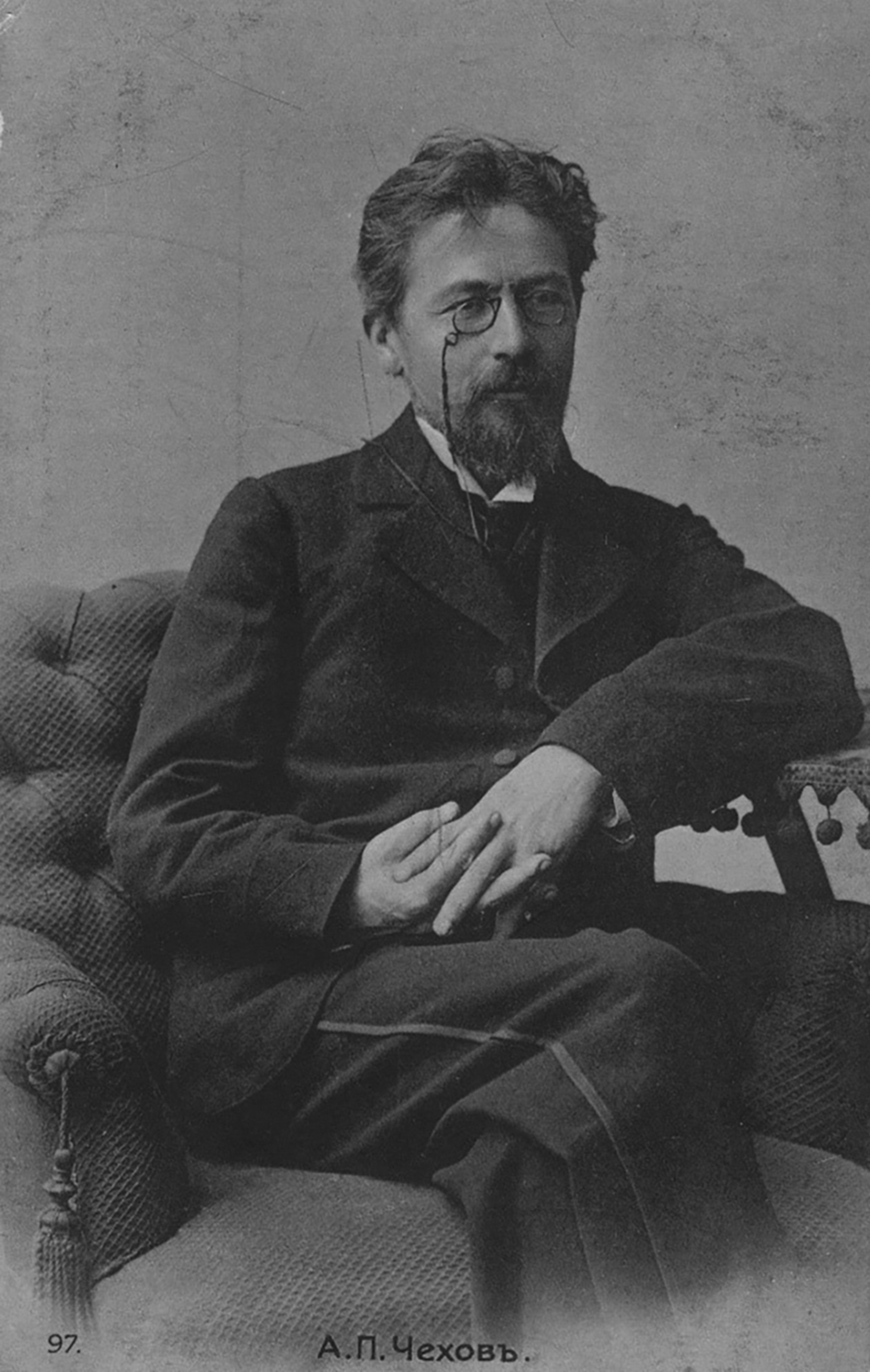
Anton Chekhov, photographed between 1899 and 1904. Postcard. Photographer unknown.
Last year we celebrated the 160th anniversary of Chekhov's birthday. Anton Pavlovich Chekhov (1860–1904) was a Russian physician, playwright and short-story writer. He started to write short stories to cover expenses for his medical education at Moscow University, today Sechenov University, and had become a well-known writer by the time he graduated and qualified as a physician in 1884. He described his attitude to medicine and literature in a letter to his publisher Aleksei Suvorin (1834–1912) on 11 September 1888: ‘Medicine is my lawful wife, and literature is my mistress’. Both as a physician and as a writer, he was deeply interested in psychiatry and even admitted that he would probably have become a psychiatrist had he not become a writer.
In 1884, while still a student, Chekhov wrote his first clinical record of a patient with neurasthenia. Mental disorders continued to interest him while he was working as a physician in 1884–1897. Chekhov not only took care of his famous friends, such as the painter Isaak Levitan (1860–1900), who attempted suicide in 1885 and 1895, but he also treated patients with mental disorders and supported measures to combat alcoholism.
In 1890, Chekhov undertook a journey to the penal colony on the island of Sakhalin in the Russian Far East to study prisoners’ daily life. He wrote a travel book Sakhalin Island, which showed the harsh living conditions of the convicts and the inadequacy of medical services on the island. When analysing the incidence data, he highlighted psychiatric diseases and their causes. The mentally ill convicts did not receive appropriate medical care. However, there were ‘plenty of reasons for a weak person with ragged nerves to go crazy’. The book drew the Russian government's attention to the penal colony and thus contributed to alleviating the plight of the prisoners.
Chekhov's keen interest in psychiatry was reflected in many of his stories and plays, such as Ward Number 6, A Nervous Breakdown, The Black Monk and Ivanov. While working on them, he consulted the current medical literature, such as Sergei Korsakov's Course in Psychiatry (1893), to be precise in the description of symptoms.




eLetters
No eLetters have been published for this article.